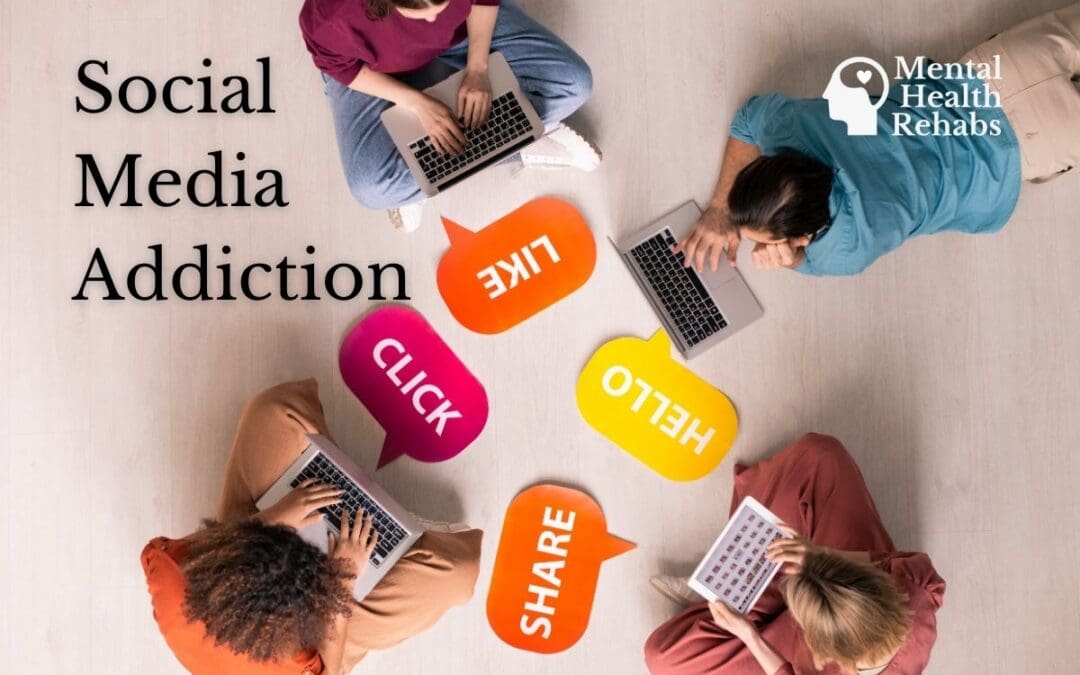The average user spends 2 hours and 31 minutes daily on social media. At least half of our phone time is reserved for social media. The average daily screen time for teenagers as of 2022 is 8 hours and 39 minutes. So, if we spend so much time on social media, does it mean we’re all addicted?
While social media can be an excellent tool for communication and learning, there’s no doubt that excessive consumption of social media can have adverse effects. Let’s unmask some signs of social media addiction and digital dependency.
What is Social Media Addiction?
Social media addiction refers to the excessive use of platforms like Facebook, Instagram, Twitter, and others, leading to significant disruption in various aspects of life, including work, school, relationships, and even physical health.
While it’s not recognized as a medical condition, the overuse of social media can lead to some addictive behaviors. It is often characterized by a compulsive need to check updates, post content, and engage in other social media activities at the expense of other life engagements.
Signs of Social Media Addiction
Identifying social media addiction can be challenging, as the line between healthy use and addiction may blur. However, some telling signs could indicate a potential problem:
- Excessive Time Spent on Social Media: Spending an excessive amount of time on social media, to the point where it interferes with daily tasks, work, school, or other responsibilities, is a clear warning sign.
- Neglect of Real-Life Relationships: If social media is causing neglect of personal relationships or causing conflict within them, it’s worth reassessing the use of these platforms.
- Anxiety or Restlessness: Feeling anxious or restless when unable to access social media, or needing to check for updates constantly, can indicate a possible addiction.
- Failed Attempts to Cut Back: Regularly attempting to cut back on social media use and consistently failing could be a sign of addiction.
- Use Despite Negative Consequences: Continuing to use social media despite experiencing negative consequences, such as worsening mental health or academic performance, is a significant indicator of addiction.
How Can You Address Social Media Addiction?
Addressing social media addiction can be challenging, but it’s certainly not insurmountable. Here are some strategies that can help manage and overcome this dependency:
- Digital Detox: Set aside periods where you consciously avoid social media. This could be a few hours daily, during meals, or even designated days weekly. This break can help reduce dependency and create healthier usage patterns.
- Limit Notifications: Notifications can be constant reminders and temptations to check social media. By reducing or turning off non-essential notifications, you can decrease these prompts.
- Set Boundaries: Establish and adhere to boundaries for social media use. This could be setting certain times of day for use, limiting the number of checks per day, or even restricting usage to certain locations (for example, not using social media in bed).
- Engage in Other Activities: Cultivate other hobbies and interests that can take your mind off social media. This can be anything from reading to cooking to playing a sport.
- Mindfulness and Meditation: Practices like mindfulness and meditation can help manage the anxiety and restlessness often associated with reducing social media use.
- Seek Professional Help: If social media use is causing significant distress or negatively impacting your life, don’t hesitate to seek professional help. Therapists and counselors can provide strategies and tools to manage this addiction effectively.
Facts and Research on Social Media Addiction
Research has shown a substantial increase in the prevalence of social media addiction in recent years. A study published in the Journal of Behavioral Addictions found that the prevalence of being at risk of social media addiction was almost 75%. Teenagers are particularly vulnerable. A report from Common Sense Media found that 50% of teenagers feel addicted to their mobile devices, and a considerable percentage involve social media use.
The effect of social media addiction among teenagers can be alarming. Increased usage can lead to a host of issues, including:
- Decreased Self-esteem: With the prevalence of unrealistic standards and cyberbullying on social media, excessive usage can lead to reduced self-esteem and self-worth.
- Sleep Disruption: Overuse of social media, especially before bedtime, can lead to disrupted sleep patterns, contributing to both physical and mental health problems.
- Reduced Physical Activity: Increased time spent on social media can lead to reduced physical activity, negatively impacting physical health.
- Academic Difficulties: Social media can become a major distraction, affecting academic performance.
- Increased Risk of Mental Health Disorders: Excessive social media use has been linked to increased risk of anxiety, depression, loneliness, and other mental health disorders.
Fighting Social Media Addiction
Remember, it’s not about eliminating social media use but about creating a balanced relationship with it. Small, consistent steps can make a significant impact over time. If you or a loved one is struggling with this issue, remember that help is available, and it’s never too early or too late to seek it.

